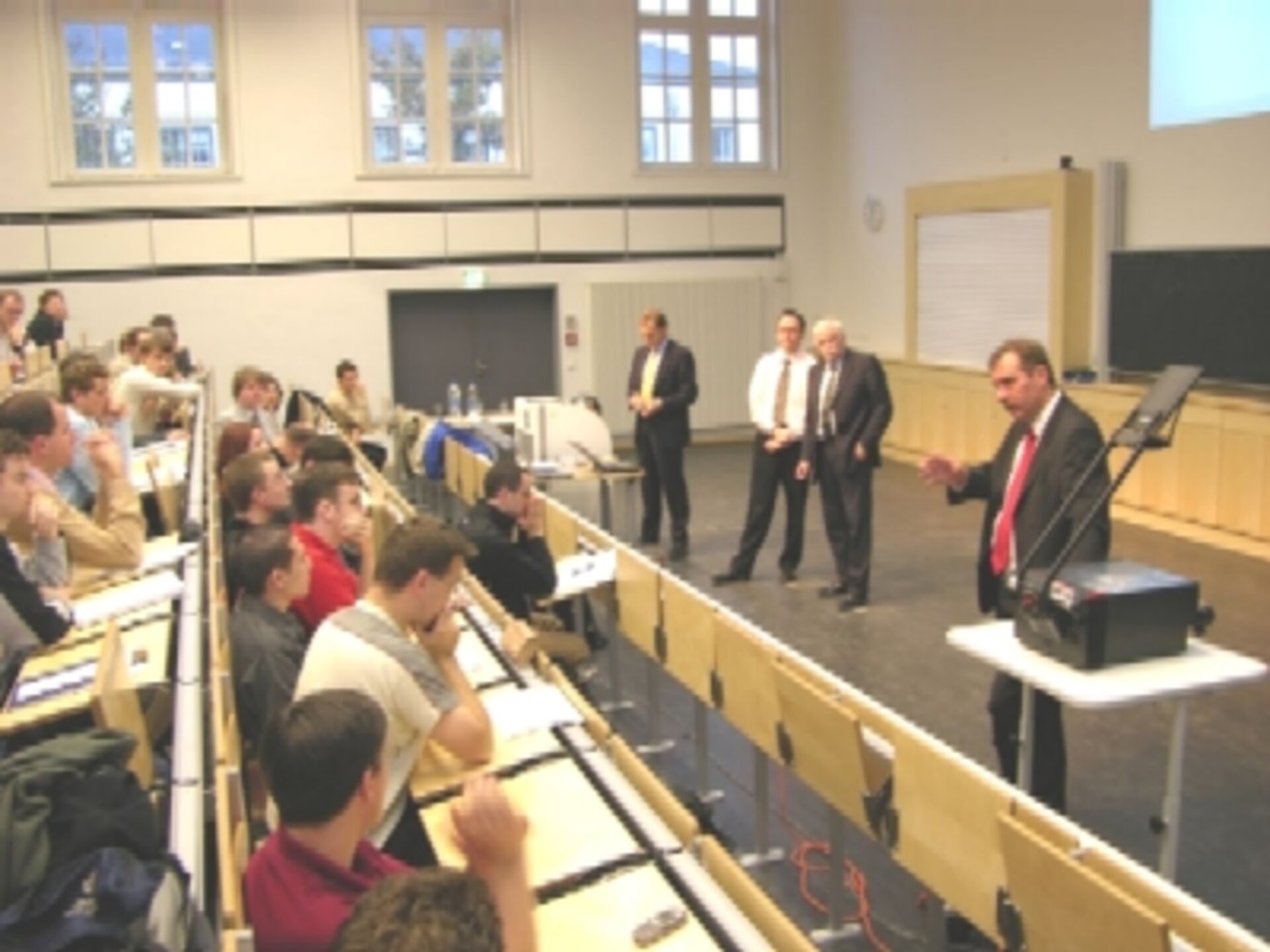University students glimpse future with ESA
What's it like to work at ESA? How would I live in a foreign country? Where can a mechanical engineer work? These were some of the questions posed to a travelling career team that visited four leading German universities last week to encourage science and engineering students to aim for space careers.
The team visited universities in Dresden, Stuttgart, Karlsruhe and Darmstadt to conduct seminars and answer questions about career progression, salaries, working conditions and professional challenges within the European space industry.
The primary focus was encouraging soon-to-graduate students, particularly women, to consider employment at the European Space Agency. The series was strongly supported by Germany's Foreign Office (Auswärtiges Amt), the German Space Agency (DLR) and the German Aerospace Industries Association (BDLI) as part of a joint desire to see more German students take up careers at ESA.
Students, professors curious about space careers
"Students and deans of engineering at the universities we contacted were all very enthusiastic about the seminars," said Dr. Frank Danesy, Head of Human Resources at ESA's Space Operations Centre, Darmstadt, Germany. "Clearly, high-potential students are very curious about careers in the space industry and at ESA."
Overall, attendance was strong; 80-plus students participated in the November 29 seminar conducted at Darmstadt's Technische Universität (Technical University).
The four-person team was led by Dr. Danesy, who was joined by Dr. Karl-Ulrich Müller from the Foreign Office, Christian Jenssen, project leader at DLR, and Stefan Hess, specialist in space and defence technologies at the BDLI.
Students from a variety of academic disciplines attended the four seminars, including aerospace, mechanical, electrical, and software engineering as well as mathematics and physics.
ESA's special career challenges
The seminar presentations stressed ESA's team-oriented work environment as well as the requirements for problem-solving ability, interpersonal skills, language capability, and results-orientation.
"A typical career path will take you from university into space industry, the DLR, or into an ESA training programme and then into an ESA staff position or work with one of our contractors," said Dr. Danesy during the Darmstadt seminar.
If post-seminar Q&A interest by time-starved students is any measure of success, the session at Darmstadt's university was definitely a winner. More than a dozen keen students stayed on afterwards to pepper the team with questions; many were particularly interested in training and education possibilities with ESA including the YGT (Young Graduate Trainee) programme.
Overall, the seminar series was warmly received by students and academics alike and significantly raised ESA's profile among soon-to-graduate, job-hungry scientists and engineers of the future.




